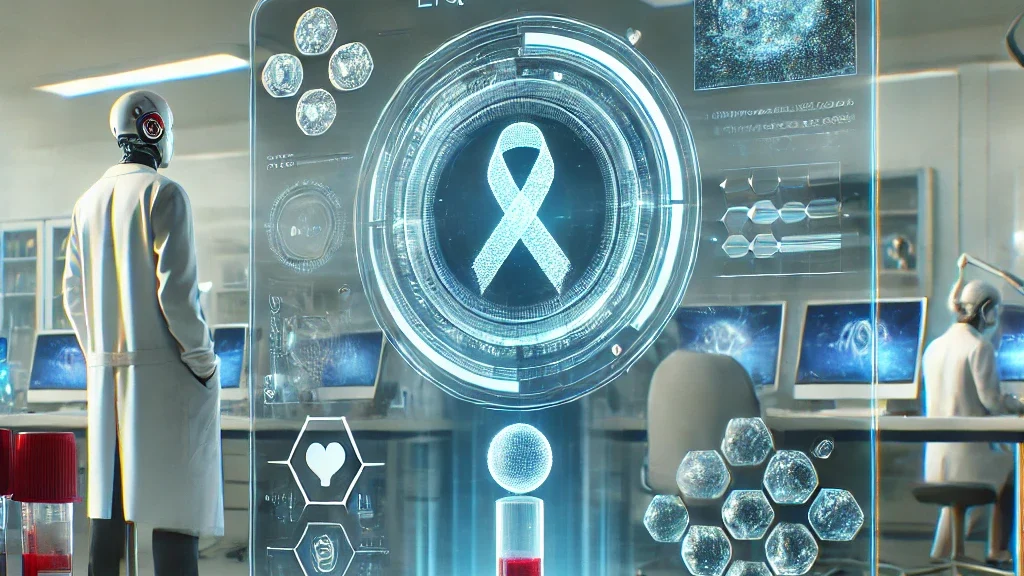
Revolutionizing Medicine: A Recent Breakthrough in AI for Early Cancer Detection
Artificial Intelligence (AI) is transforming industries, but its impact on medicine is perhaps the most profound. Recently, researchers have achieved a groundbreaking milestone: an AI-driven system that can detect early-stage cancers with unprecedented accuracy. This advancement has the potential to save countless lives, reduce healthcare costs, and fundamentally change the way we approach cancer treatment.
The Breakthrough: AI and Liquid Biopsies
One of the most promising developments in oncology is the use of AI to analyze liquid biopsies. Liquid biopsies are blood tests that detect cancer-derived DNA fragments in the bloodstream. Unlike traditional tissue biopsies, they are minimally invasive and can provide insights into multiple types of cancer at once. However, analyzing the massive and complex data from these tests has been a significant challenge—until now.
Researchers at GRAIL, a biotechnology company, have developed an AI system capable of detecting over 50 types of cancer from a single blood draw. This system uses machine learning algorithms to identify subtle patterns in the DNA mutations and methylation changes associated with cancer, achieving an accuracy rate far exceeding traditional methods. The breakthrough was published in a recent study in The Lancet Oncology and has already garnered attention worldwide.
Real-World Impact
Case Study: Early Detection of Pancreatic Cancer
Pancreatic cancer is one of the deadliest forms of cancer, with a 5-year survival rate of less than 10%. Early detection is critical, but symptoms often appear too late for effective treatment. In a pilot study, the AI-driven liquid biopsy system successfully identified pancreatic cancer in asymptomatic patients, allowing for early interventions that significantly improved survival outcomes. By detecting the disease before symptoms emerged, doctors were able to perform curative surgeries or initiate effective treatments that increased the likelihood of remission.
Case Study: Multi-Cancer Early Detection (MCED) Program
In another real-world application, the Multi-Cancer Early Detection (MCED) program tested the AI system on patients at high risk of cancer due to age, lifestyle, or family history. The results demonstrated not only high sensitivity in detecting various cancers but also a low rate of false positives. This significantly reduced unnecessary follow-up procedures, making it a game-changer for early cancer diagnostics.
Economic Benefits
Healthcare systems worldwide are burdened by the high costs of late-stage cancer treatments. Early detection can reduce these costs dramatically. For instance, the average cost of treating stage IV colorectal cancer exceeds $300,000 per patient, while early-stage treatment costs are less than half of that amount. Implementing AI-based early detection systems could save billions annually while improving patient quality of life. Moreover, patients who receive early diagnoses often have better physical and emotional well-being, as their treatment paths are less invasive and more effective.
Challenges and Ethical Considerations
While this breakthrough is promising, it is not without challenges. The system’s accuracy must be validated across diverse populations to ensure fairness and reduce biases. Initial studies have shown variations in accuracy rates based on genetic diversity and geographical regions, highlighting the need for more inclusive datasets.
Additionally, ethical concerns surrounding data privacy and the potential misuse of genetic information must be addressed. Liquid biopsies involve sensitive genetic data, which, if improperly handled, could lead to issues such as genetic discrimination by employers or insurers. Organizations like the National Cancer Institute and advocacy groups are working to establish guidelines to navigate these challenges responsibly, focusing on transparent data governance and patient consent protocols.
The Road Ahead: Expanding AI Applications
This breakthrough is part of a larger trend of AI innovations in healthcare. From drug discovery to personalized medicine, AI is reshaping the landscape. For example, AI algorithms developed by DeepMind have been instrumental in predicting protein structures, accelerating the development of new drugs and treatments. Companies like IBM Watson Health and Tempus are using AI to identify optimal cancer therapies based on individual patient profiles, paving the way for highly personalized medicine.
Collaborative Efforts
Collaboration between tech companies, research institutions, and healthcare providers is crucial for scaling these technologies. For example, partnerships between GRAIL and major healthcare systems aim to integrate AI diagnostics into routine screenings, ensuring accessibility for all socioeconomic groups. Pilot programs in countries like the UK and Japan are already demonstrating the feasibility of these integrations, with plans to expand globally.
How Diggabyte Can Help
At Diggabyte.com, we explore the latest advancements in AI, technology, and their real-world applications. Our platform provides in-depth insights into innovations like these, helping you stay informed and prepared for the future. We also offer resources and tools for individuals interested in understanding how AI impacts various industries, including healthcare.
Conclusion
The integration of AI into medical diagnostics represents a seismic shift in healthcare. The recent advancements in cancer detection are just the beginning, offering hope to millions and paving the way for a new era of medicine. As we move forward, it’s crucial to balance innovation with ethical responsibility, ensuring these tools benefit all of humanity. The journey from breakthrough to widespread implementation is complex, but the potential rewards—in lives saved and improved healthcare outcomes—are immeasurable.
For more insights into how AI is shaping our world, visit Diggabyte.com.
